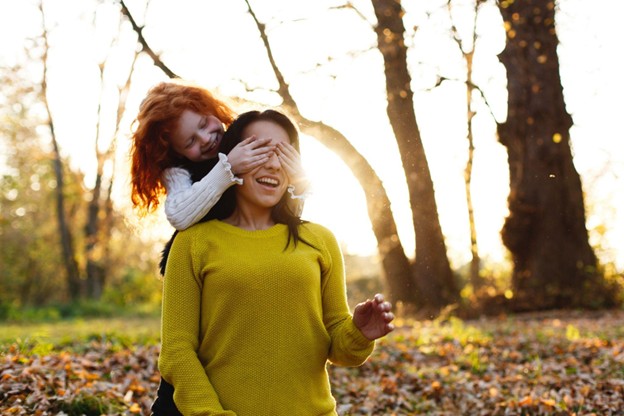Parenting is a weighty responsibility, and anxiety often sneaks into the corners of everyday life. When you juggle work, bills, family dynamics, and the unpredictability of raising children, stress can easily build until it seeps into your tone, your patience, and your routines. What many parents overlook is the way this personal anxiety can ripple into their children’s emotional world. Kids don’t need words to pick up on tension. They see it in your eyes, they hear it in your pauses, and they carry it quietly into their own sense of security. Recognizing how your own struggles may be shaping theirs is not about blame—it’s about awareness, and the chance to protect the bond you’re building together.
Spotting the Signs in Daily Life
Children often mirror the emotional states of their parents without ever saying so. If you notice sudden changes in their sleep, clinginess, irritability, or unexplained complaints like stomachaches, those could be signals of stress transferred from you. Young children especially don’t have the language to say “I’m worried because you’re worried.” Instead, they act it out. These behavioral changes aren’t always a direct copy of your own anxiety, but they are worth paying attention to. If your stress levels rise and you see them pulling inward or lashing out more than usual, that’s a strong cue that your state is bleeding into theirs.
How Kids Absorb Emotional Cues
Children are experts at reading emotional currents. Even if you think you’re hiding it, they can sense the way your shoulders tighten or the rhythm of your voice changes. Over time, they start internalizing those patterns. For instance, if you respond to pressure with avoidance or sharp bursts of frustration, they may learn that this is the “normal” way to handle uncomfortable feelings. This transmission isn’t intentional—it happens silently, moment by moment, until it builds into a framework for how they expect the world to feel. The good news is that modeling calm, reflective coping skills works the same way, and children can pick up healthier responses when they see you practicing them consistently.
When Protection Turns Into Restriction
Anxiety in parenting often shows up as overprotection. The instinct to shield your child from every possible hurt is natural, but taken too far it can stunt their growth. When kids are never allowed to take small risks, they miss opportunities to build resilience and confidence. Your fear becomes a cage, even if it’s lined with love. Paying attention to how often you step in unnecessarily—whether to fix a problem they could solve or to prevent a failure they could recover from—can be a powerful indicator of how your anxiety is shaping their independence.
Exploring Career Growth as Stress Relief
Sometimes the root of parental anxiety comes from a workplace that drains more than it gives back. Shifting careers or pursuing further education can lessen this burden, giving parents more stability and energy to share at home. For example, if you work in nursing and want better working conditions, shifts, and pay, master’s in nursing programs can position you for a more hands-on approach and see improved pay and hours. Even outside of healthcare, online degrees create flexibility that allows parents to keep earning while studying. Career progress is not just professional—it’s a pathway to a calmer home life.
The Lasting Impact Over Time
What begins as small changes in childhood can grow into significant challenges later in life. Children raised in environments where anxiety dominates may carry heightened stress responses into adulthood, struggling with self-esteem and decision-making. They may also become more prone to depression or anxiety disorders themselves. The weight of a parent’s unspoken tension doesn’t vanish with age; it often lingers as an echo in how kids see themselves and the world. Recognizing this trajectory is not meant to alarm but to emphasize that the way you handle your stress today shapes your child’s resilience tomorrow.
Why Age and Temperament Matter
Not all children respond to parental anxiety in the same way. Younger kids may become clingier, seeking reassurance in every interaction, while older children might withdraw, internalizing the sense that something is wrong but not knowing how to express it. Personality and temperament matter too—some children are naturally more sensitive, making them quicker to pick up on your emotional state. Gender can also play a role, with studies showing differences in how boys and girls display stress. The point isn’t to overanalyze but to notice: your child’s reaction is a mirror that can teach you a great deal about the emotional tone you’re setting at home.
Practical Steps for Parents
Acknowledging that your anxiety affects your child is the first step. The next is learning how to manage it in ways that don’t pass the burden along. That might mean therapy, journaling, mindfulness practices, or support groups—any outlet that allows you to process stress before it spills into your parenting. Sometimes, professional guidance is the best path forward, especially when anxiety feels unmanageable. Even small changes in how you handle your emotions can make a significant difference.
Anxiety doesn’t make you a bad parent. It makes you human. What matters is how you respond once you recognize the ways your stress may be shaping your child’s world. Children thrive on stability, reassurance, and love—but they also thrive when they see those values modeled in real time. By acknowledging your anxiety and taking steps to address it, you’re not just helping yourself, you’re giving your child the emotional foundation they need to face life with confidence. That ripple effect is profound, and it begins with you deciding to face your anxiety instead of letting it define the household atmosphere.
(This blog entry was contributed by Patrick Young, Founder of AbleUSA. Able USA offers informational resources to individuals with disabilities to improve their quality of life. Their educational blog can be found here).

